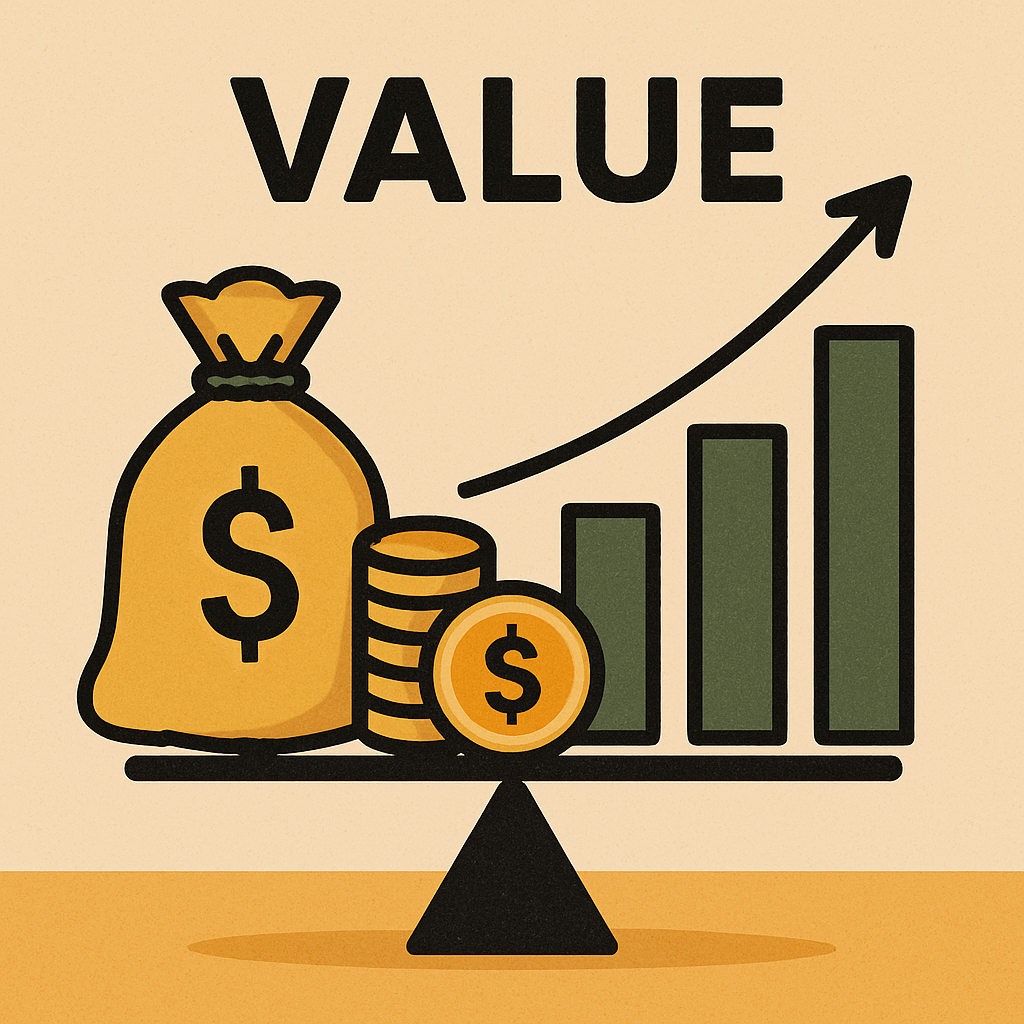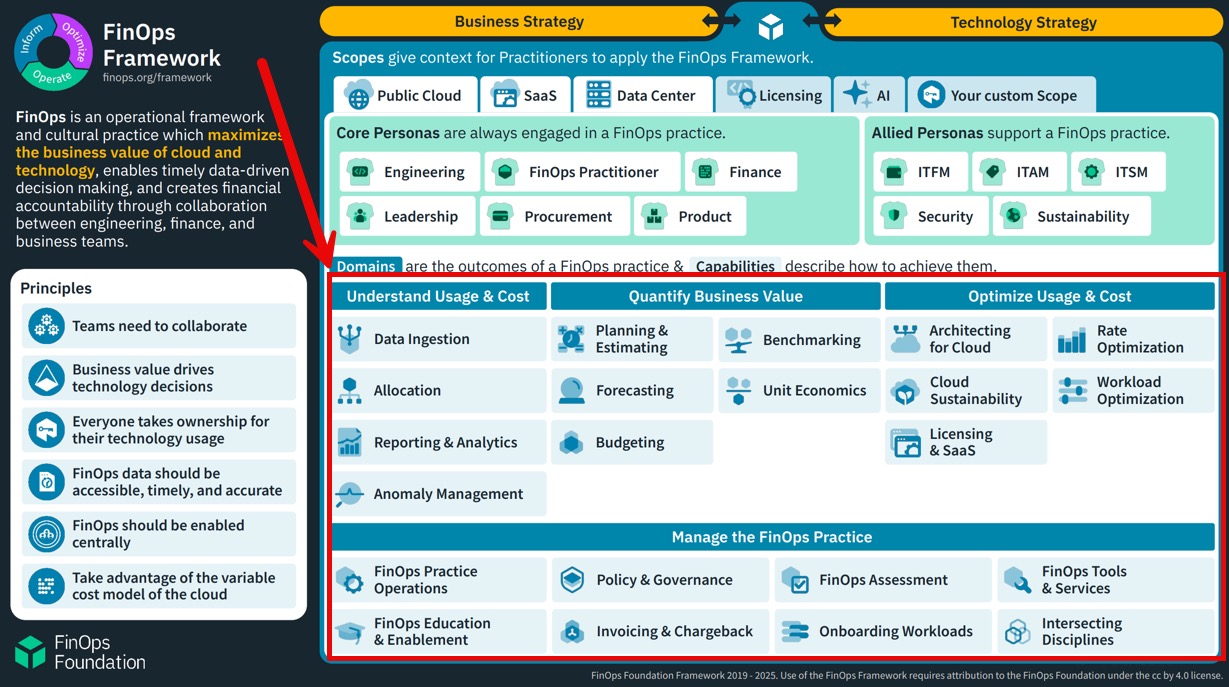
What is Value?
When I think of value I often think of money and time and ask myself: Is this thing worth the money and/or the time?
If the thing is not worth the money and/or the time, I do not do the thing as it provides no or not enough value vs. other things.
However, value can be further defined in different ways, beyond just time and money:
- General: Importance, worth, usefulness
- Economics: Monetary worth of something
- Mathematics: Quantity assigned to a variable or result of a calculation
- Personal Values: Principles or standards considered important
- Computer Science: Data stored in a variable or returned by a function

Value takes on an aggregation of the above definitions within FinOps:
- Monetary Worth and Efficiency: Value is often measured as the monetary or material worth of resources, assets, or services within the organization, but in FinOps, it also includes how efficiently those resources are used, or not used.
- Cost Optimization: FinOps seeks to reduce unnecessary expenditures and improve cost structures, thereby increasing the value derived from every dollar spent.
- Strategic Decision-Making: Value is created when financial data and analytics inform decisions that enhance operational agility, scalability, and profitability.
- Performance Measurement: Value is assessed by comparing financial outcomes against business objectives, enabling organizations to identify opportunities and risks.

When viewing the FinOps framework through the lens of value, one can then identify how each capability is valuable :
- Reducing costs through rate optimization.
- Saving money through workload optimization.
- Understanding costs through data ingestion, allocation, and reporting & analytics.
- Measuring business efficiency, optimizing the business, driving accountability, and making money through unit economics.
- Controlling unexpected costs through anomaly management.
- Controlling costs through budgeting.
- Estimating costs through forecasting.
- Scaling effectively through architecting for the cloud.
- Measuring value via KPI’s or metrics with benchmarking.
- Understanding and optimizing software licenses and SaaS investments via licensing & SaaS.
- Coordinating with other related personas (ITAM, ITFM, Sustainability, other) via intersecting disciplines.
- Driving value through various tools, technologies, and services via FinOps Tools & Services.
- Managing workloads to/from the cloud/on-prem/other via onboarding workloads.
- Assessing where one is at and where one could provide more value via FinOps assessment.
- Drive accountability such that others are providing value via invoicing & chargeback.
- Putting up guardrails and preventing potential mistakes that are not valuable via policy & governance.
- Helping others understand FinOps, its value proposition, and practicality via FinOps education & enablement.
- Enabling FinOps centrally to drive value through strategy and process via FinOps practice operations.
So, what does value mean to you?
Discuss this on the linkedin article